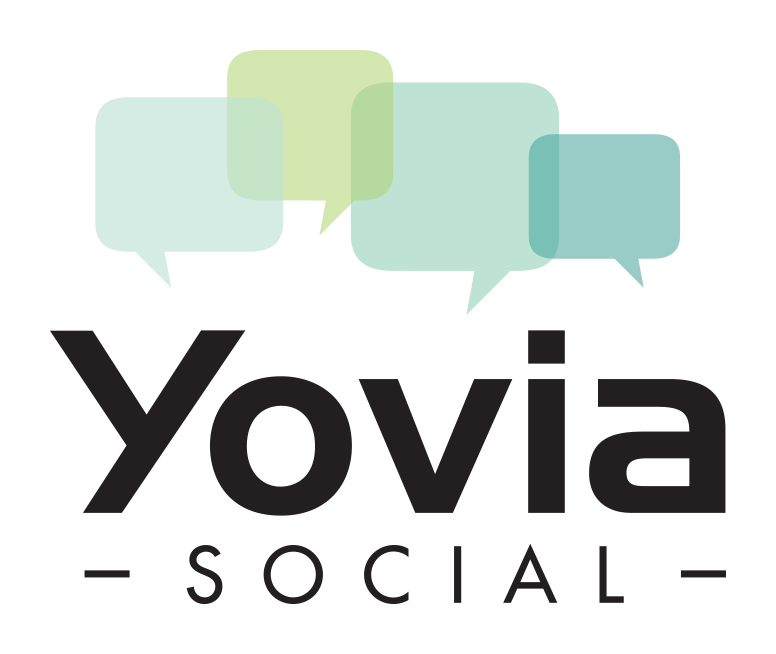Harnessing the Power of Social Data to Transform Your Marketing Strategy
Social data is one of the most critical tools marketers can leverage for real-time audience insights. Whether you’re a lean startup or a global enterprise, social data offers actionable intelligence that can sharpen your understanding of consumer behavior, optimize campaigns, and ultimately drive growth. Let’s look closer at what social data is, how to gather it, and how you can use it to make smarter, more impactful marketing decisions.
What is Social Data?
Social data is information collected from social media platforms and online communities. It can encompass:
Demographics: Age, gender, location, profession, etc.
Psychographics: Interests, opinions, and lifestyles.
Behavioral Insights: Posts, shares, likes, comments, sentiment, and engagement patterns.
Trends & Hashtags: Real-time conversations and cultural movements shaping online discourse.
By analyzing these data points, you can develop a nuanced profile of your target audience, monitor brand perception, and keep tabs on what your competitors are doing.
Why Social Data Matters for Marketers
Real-Time Insights
Traditional market research can be time-consuming and costly. Social data, on the other hand, offers real-time insights. You can quickly see whether a new campaign resonates or if consumer sentiment is turning negative—without waiting for a post-campaign survey or focus group results.
Audience Segmentation
Not everyone in your audience wants or needs the same thing. Social data allows you to segment your audience into subgroups based on various factors (such as interests, buying power, location, or engagement preferences). This segmentation helps you tailor your messaging and product offerings more precisely, boosting relevance and conversion rates.
Data-Driven Decision Making
Social data eliminates guesswork by providing tangible, evidence-based information about your customers. Decisions around content, messaging, and even product development become more strategic and are guided by actual behavioral indicators rather than assumptions.
Competitive Intelligence
Want to keep an eye on the competition? Social data gives you a front-row seat to competitor strategies, customer complaints, and market gaps. By analyzing how consumers react to a rival brand, you can refine your own approach and identify opportunities to stand out.
How to Gather Social Data
There are a number of ways that you can gather social data. The first is with social listening tools. Platforms such as Sprout Social, Hootsuite, and Brandwatch allow you to track mentions, keywords, and hashtags related to your brand or industry. These tools can also gauge the overall sentiment (positive, negative, neutral) surrounding specific topics or campaigns.
Second, most social media networks offer built-in analytics. For instance, Twitter Analytics shows impressions, engagement rates, and audience demographics. LinkedIn provides insights on how your content is performing among different professional groups. Facebook and Instagram supply detailed data on post reach, engagement, and audience behavior. Tapping into each platform’s analytics can unearth granular details about your audience’s preferences.
Website analytics is your third option (Google Analytics, for example). By combining website behavior (page visits, bounce rates, conversions) with social interactions, you can form a more complete picture of the customer journey. Lastly, user-generated content (UGC) lets you see what your audience is posting about your brand. Testimonials, reviews, and posts featuring your products or services can reveal how customers truly feel about you.
Using Social Data to Refine Your Marketing Strategy
Content Personalization
If your social listening shows that customers are talking about specific pain points or trending topics, create content that addresses those exact issues. For instance, if you notice a surge in questions about product features, consider developing tutorial videos or how-to blog posts. By catering to the needs of your audience, you demonstrate empathy and expertise—both of which foster stronger brand loyalty.
Optimizing Ad Campaigns
Social data can inform everything from ad copy to creative assets. Take note of common phrases or visuals that drive engagement. A/B test different variations, and let the data guide you toward the winning combination. Platforms like Facebook Ads Manager and LinkedIn Campaign Manager are goldmines of real-time performance metrics (CTR, CPC, conversions), helping you continuously refine your targeting.
Product Development and Refinement
Observing how customers talk about your product on social media can reveal hidden insights into what’s working and what’s not. You might discover feature requests, pain points, or even new use cases you hadn’t considered. This real-time feedback loop can shape your product roadmap, ensuring you build features that align with your market’s needs.
Influencer Marketing
Influencers play a key role in many social marketing strategies—but you shouldn’t choose them blindly. Social data helps you identify influencers who align with your brand values and genuinely connect with the audience you’re targeting. Evaluate their engagement metrics, follower demographics, and the sentiment around their content before forging partnerships.
Best Practices and Ethical Considerations
Data Privacy: Always comply with data protection laws (e.g., GDPR). Collecting and analyzing social data should be transparent, and user consent is crucial if you’re storing personal information.
Quality Over Quantity: It’s easy to get overwhelmed by the sheer volume of social data. Focus on key metrics (engagement rate, sentiment, conversion rates) that align with your marketing objectives.
Avoid Assumptions: Don’t rely solely on automated sentiment analysis. Pair automated tools with human oversight for the most accurate insights.
Be Ready to Act: Gathering data is only half the battle. Ensure you have a plan to act on your findings—whether that’s pivoting your messaging, revising your product features, or engaging with customers one-on-one.
Social Media Marketing Services
The power of social data lies in its ability to listen in real time to the pulse of your market. From tailoring your content strategy to refining your product, the insights gleaned can lead to more effective campaigns, happier customers, and a stronger bottom line.
Ready to unlock the potential of social data for your brand? Contact Yovia Social to learn more. We’ll start by identifying which metrics matter most to your goals and help you invest in the right tools. With the right strategy in place, social data can be your most powerful ally.

